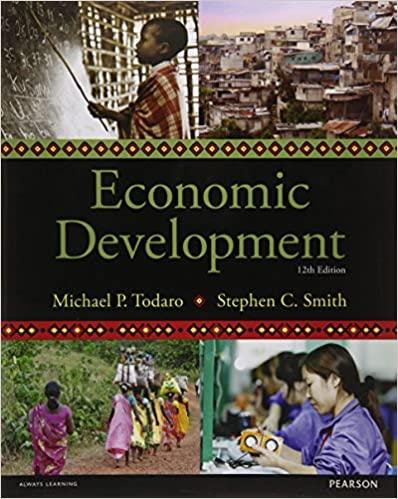Suppose that potential migrants make decisions only based on comparisons of their expected incomes. Now suppose the
Question:
Suppose that potential migrants make decisions only based on comparisons of their expected incomes. Now suppose the rural wage is $1 per day. Urban modern sector employment can be obtained with 0.25 probability and pays $3 per day. The urban traditional sector pays $0.40 per day. Using this information, and making assumptions as needed, can you make a prediction about whether there will be any rural-to-urban or urbanto-rural migration? Explain your reasoning, stating explicitly any simplifying assumptions, and show all work. Consider an approach that calculates an expected income in the urban sector of 0.25(3) + (0.75)(0.40) = 1.05; and note that this exceeds the rural wage of 1—would you predict that there will be rural-to-urban migration? What simplifying assumptions are needed to make this a valid conclusion? Now, what would the urban traditional sector daily income have to be to induce no net rural-urban migration? If wages in all sectors are inflexible, what else adjusts in this model to lead to equilibrium (how much does it adjust and what is the intuition)?
Step by Step Answer:






